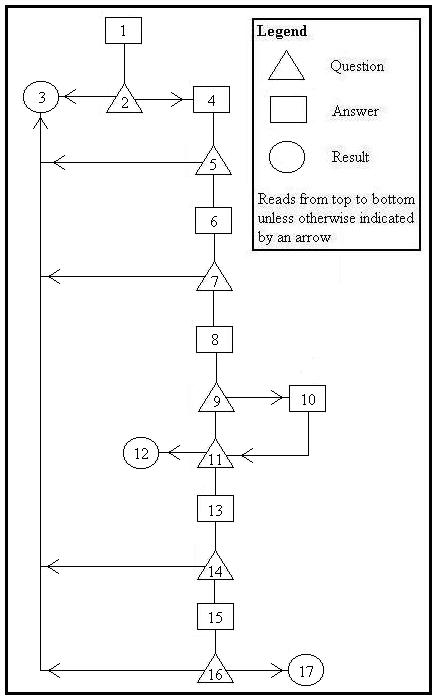

| 1. | American troops in a foreign war intentionally slaughter civilians, a breach of the Geneva Conventions and a potential public relations disaster. | |
| 2. | Are the press near enough to the scene that they can independently report on what happened? | |
| NO | 3. | Ignore the atrocity and its aftermath. It never happened. The American military is the most disciplined fighting force the world has ever known. That’s our story, and we’re sticking to it. After a few days, the public will forget it ever happened… |
| YES | 4. | Announce that the Army has raided an insurgent stronghold, killing as many enemy combatants as you think the press will believe. The American military is the most disciplined fighting force the world has ever known. That’s our story, and we’re sticking to it. |
| 5. | Has the press started reporting on contradictions to the official story? | |
| NO | GO TO 3 | |
| YES | 6. | Announce that the military will investigate the incident, and that if there has been any conduct unbecoming a man or woman wearing the uniform of the United States army, it will be prosecuted to the fullest extent allowed by military law. To forestall an actual prosecution, give the investigation narrow terms but a broad timeline and, most important, make sure it is closed to the public. |
| 7. | Is the press following through on its investigation of the original incident or reporting on the military investigation? | |
| NO | GO TO 3 | |
| YES | 8. | Have members of the military and the administration refuse to comment on the ongoing investigation for fear of prejudicing it, while, at the same time, repeatedly claiming that 99.9% of soldiers in the war zone are good people who follow the spirit as well as the letter of the rules of combat. |
| 9. | Does anybody in the press point out that you had no trouble prejudging events before other sources cast your official version in doubt? | |
| YES | 10. | Explain that your newfound caution is the result of new evidence emerging and quickly move on to the next question. |
| NO | 11. | Is the public still favourably disposed towards the war? |
| YES | 12. | Announce that the investigation found no evidence of wrong-doing (preferably late Friday afternoon, after all of the real journalists have gone home for the weekend) and that you now consider the case closed. Quietly reassign the principles in the war crime to desk duty or, even better, give them an honourable discharge. |
| NO | 13. | Announce that the principles in the “incident” (never an atrocity, war crime or really, really bad action) will be tried by a military tribunal. Make sure that they are tried at different times and locations (mass trials bring up memories of – shudder – Nuremberg). Make sure that only the lowest ranking officers possible are charged and that the terms of the charges are sufficiently narrow to keep suspicion away from higher officers (after all, there’s a war on, and they have more important things to do!). |
| 14. | Is there ongoing coverage of the trial? | |
| NO | GO TO 3 | |
| YES | 15. | Announce that there is nothing to learn from the trial. If found guilty, the soldiers on trial were just a few “rotten apples,” but the vast majority of soldiers in the United States army are actually decent people who love their country and are committed to its values. |
| 16. | Does the press stick around for the verdict? | |
| NO | GO TO 3 | |
| YES | 17. | When the guilty verdict is announced, hold a press conference to point out that justice has been served and claim that this proves that the United States military will not tolerate rogue soldiers who do not play by the rules. |
Notes
The American Hot War Atrocities Public Relations Algorithm was originally developed for use in Vietnam, the first time that a nation could view events taking place in a distant war almost as they happened. Although it has been slightly updated for current wars, the original has proven remarkably resilient, and is still largely applicable.
The purpose of the Algorithm is, of course, to cover the asses of everybody up the chain of command. There was a time when leaders accepted responsibility for the actions of those under their command. How quaint. In modern warfare, it is understood that an attack on leaders (either military or civilian), no matter how well founded, is an attack on the war itself, which is unacceptable for at least 30 years after the war’s end. (Of course, if the war has no end…)
As always, the Algorithm is a reflection of the way things actually are, not what is morally correct or the way we wish things to be. For that, you probably want to read some fiction…